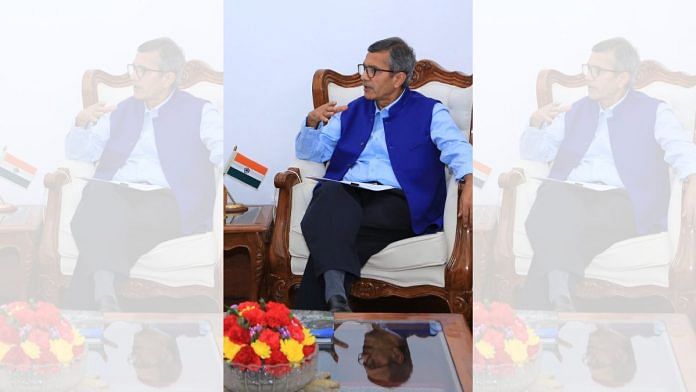He added that the ministry is currently revising the Defence Acquisition Procedure (DAP) 2020 to better align with operational realities and expedite decision-making. Implementations of these reforms are underway in key programmes such as shipbuilding and the Advanced Medium Combat Aircraft (AMCA) programme.
As ThePrint the ministry had then approved a proposal to nearly halve procurement timelines—an initiative expected to feature in the updated DAP, anticipated later this year.
Among changes under consideration are introduction of deemed licensing beyond a defined time frame to ensure accountability, removal of outdated practices such as product reservation for defence PSUs and streamlining of procedural bottlenecks that have historically slowed defence acquisitions.
Defence Secretary Singh’s comments come at a time when delays in defence production and delivery remain a pressing concern.
Earlier at the same event, Air Chief Marshal A.P. Singh also, citing constant delays in defence projects and failure to stick to delivery schedules, especially of fighter jets.
“While signing the contract itself, sometimes we are sure that it is not going to come up, but we just sign the contract. Uske baad dekhenge kya karna hai (we’ll see what to do about it later). Of course the process gets vitiated,” he said.
This was a direct reference to the contract for the 83 Tejas Mk-1A contract signed in 2021, delivery of which is yet to begin.
ThePrint had in 2021 reported that while the IAF signed the contract with state-owned HAL, the fear was that the delivery would not begin on time. The first aircraft was to be handed over to the IAF in February last year.
While assuring the private sector of improved ease of doing business and a level playing field, the defence secretary further stressed the importance of long-term investments in research and development, saying that the future of India’s defence sector will rest on the depth of its innovation capacity.
He underlined that companies without adequate engineering manpower, capital equipment or willingness to invest in R&D would have limited relevance in the country’s strategic ecosystem.
Defence Research and Development Organisation (DRDO) chief Dr Samir V. Kamat, who also spoke before him at the summit, echoed these views, stating that both the government and private sector must increase their R&D outlays.
“Today, we spend 5 percent of our defence budget on R&D. The Raksha Mantri has promised that in the next five years, this will be scaled up to 10 percent,” he said. He further stressed that the private sector must also match this commitment by dedicating a similar proportion of their budgets to research.
Further, Air Chief Marshal A.P. Singh, during his remarks urged the industry to voluntarily commit a tenth of their budgets to innovation. Drawing a parallel with the Sikh practice of ‘dasvandh’, the tradition of donating one-tenth of one’s earnings for collective welfare, he said such a step was necessary to build credible self-reliance in defence.
(Edited by Amrtansh Arora)








